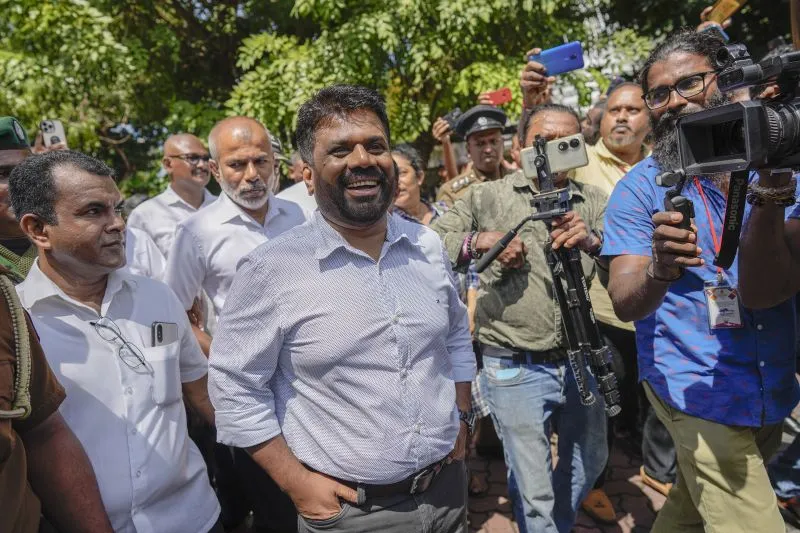Sri Lankans Elect Dissanayake: A New Hope for Economic Recovery

Election Overview
Sri Lankans elected Marxist-leaning Anura Kumara Dissanayake as their new president on Sunday, highlighting a collective hope for financial rejuvenation. With a pledge to tackle corruption and facilitate economic growth, Dissanayake won 5.6 million votes, translating to 42.3%. This marks a significant upgrade from his previous 3% in the last presidential election.
The Shift of Power
- Incumbent President Ranil Wickremesinghe conceded defeat, finishing third with 17% of the votes.
- Voter turnout was reported at approximately 75% of the 17 million eligible citizens.
- Dissanayake’s victory reflects a broader desire for change amidst ongoing economic challenges.
Economic Context and Reforms
This election came after Sri Lanka faced its worst economic crisis, triggering a humanitarian urgency. Dissanayake, viewed as an agent of change, aims to dissolve parliament within 45 days to mandate fresh policies. His manifesto promises include tax reductions and a $25 billion debt restructuring plan.
Future Implications
- Dissanayake needs to maintain alignment with the IMF program to stabilize the economy.
- His support for anti-corruption measures has garnered popular backing despite potential financial risks.
- The expectation of improved living conditions is paramount among voters dealing with high living costs.
Dissanayake's leadership will require balancing reformative economic policies with the realities of fiscal commitments and international expectations to uplift millions from poverty. The political scientist Pradeep Peiris forecasts that this election outcome is just a beginning, reflecting deeper societal aspirations for meaningful change.
This article was prepared using information from open sources in accordance with the principles of Ethical Policy. The editorial team is not responsible for absolute accuracy, as it relies on data from the sources referenced.